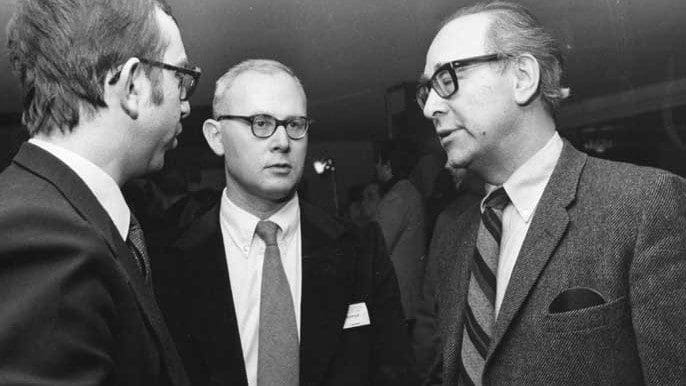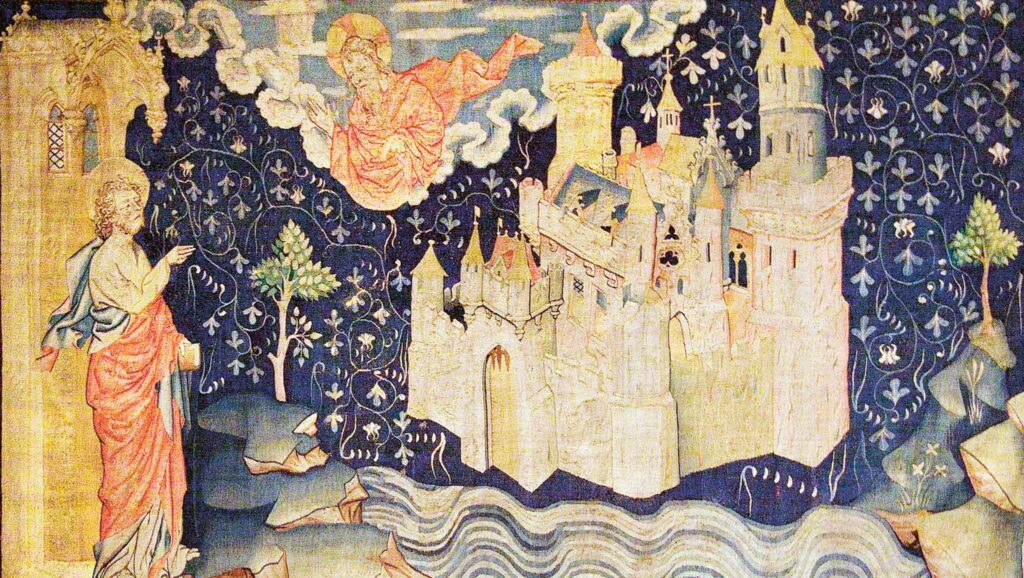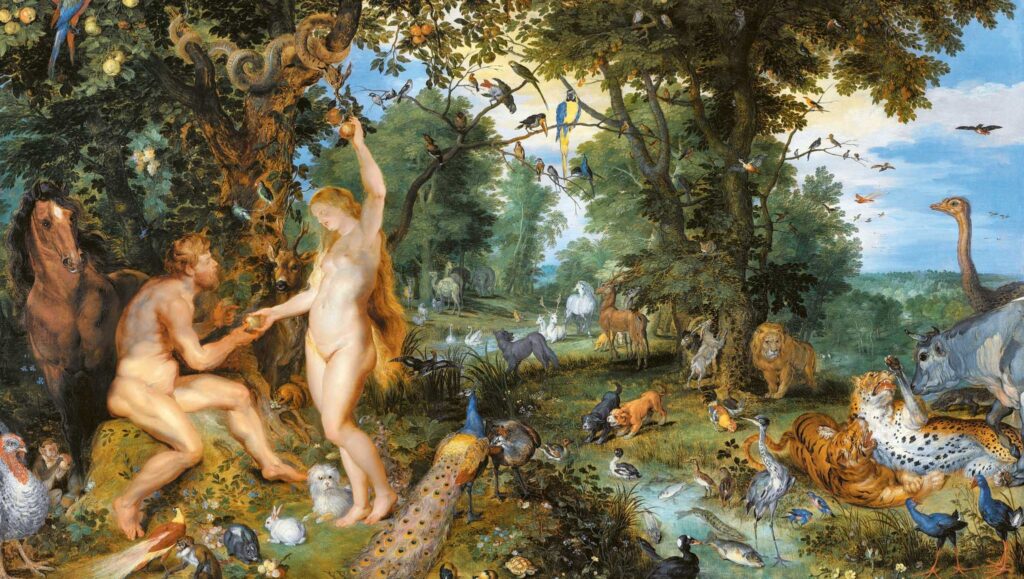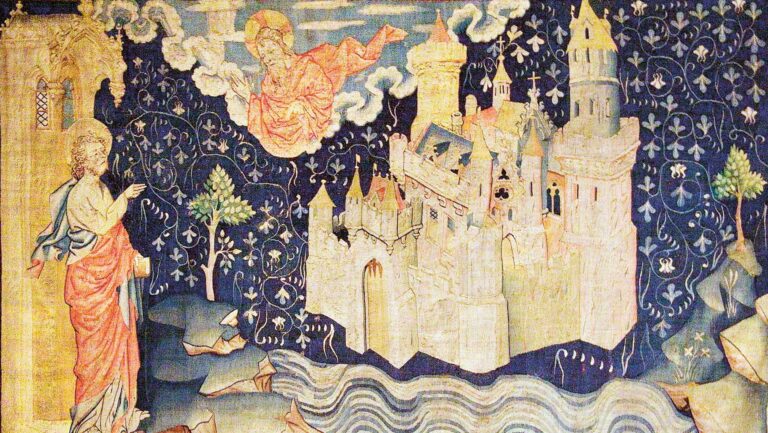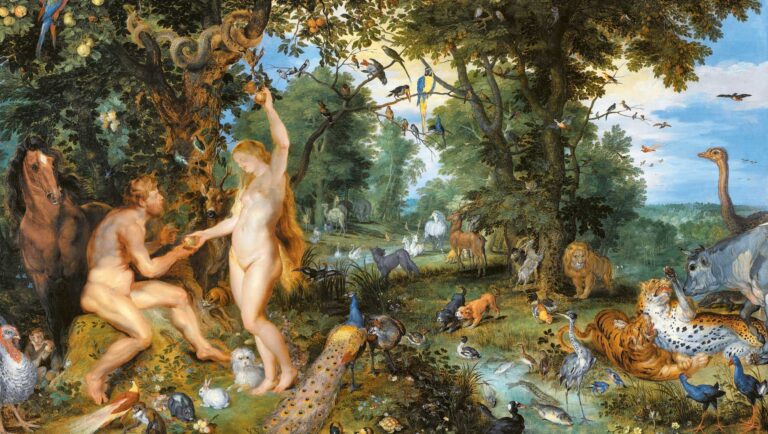The fundamental pursuit of Thomas Molnar’s theology is to investigate the relation between the revelation and the Kantian autonomous reason; in other words: faith-based religion and (modern) philosophy. Philosophy was, before the enlightenment, ancilla theologiae—the handmaiden of theology—but, with the unfolding of modernity, the gap began to open up at an ever-increasing speed between philosophy and religion, with a perspective of no transcendence, which manifested itself in the autonomy of reason.
However, three centuries after the beginning of the Enlightenment, there are clear signs of failure. Philosophy is still not autonomous but has become ancilla scientiae—the handmaiden of natural science.
The price of this process is that the fundamental principles of being, which are not reducible to a pure quantity (and these are equivalent to the fundamental questions of philosophy) are removed from the line of sight of philosophy.
This is the fundamental philosophical problem of Molnar.
His answer is that reason cannot be based solely on its own principle, without also being called into question in itself; rationality cannot be explained by rationality itself, as we cannot understand the world from the world and man from man. Reason therefore, has to be subject to an external authority, the transcendent authority to revelation which is independent of man, otherwise normality becomes impossible and absurd utopias will pervade human thinking.
For Molnar, one of the most fundamental questions is: would it be possible to reconstruct a bridge between reason and faith, which has been broken for a long time?
The most influential figures of modern philosophy: Kant, Nietzsche, Heidegger, or Sartre would say no—according to him. But, as he wrote in his Philosophical Grounds: philosophy is unable to get rid of the basic issues, they are still valid and ‘the real philosophers will be recording them.’[1]
And if we return to these questions it’s inevitable to blunder into ‘the God question’: which is the question of the questions,
the beginning, the source, and base of existence (Greek: arché) and which always has to be ‘in a far distance, arcane and distinct, but at the same time, it has to be more real than every other substance’[2] because it is only in that divine distance and power where world and man become understandable.
But a human reasoning solely based on itself is unable to grasp the true God concept, it cannot discover the primordial being and is incapable of discovering universal formulas—and because of that, not man but God himself—as a reality which is personal, transcendent and objective has to ‘intervene’ in order to familiarize himself with man. This conceptual relationship is the fundamental difference between the God of the philosophers and the God of the Bible.
This foundation is assured by status creaturae—the cores of humanity as a state of man as a creature—in contrast with God, as the ‘Ganz Andere’[3]—a reality which is utterly transcendent to man.
The duality of God and man is the most fundamental reality of existence:
a reality which can structure and constitute all relations of human beings. This principal duality is the source of everything: epistemology, ontology, moral philosophy, politics, and—of course, as Martin Buber said before—the ‘Ich und Du’ relationship is the source of the true philosophy of religion and theology.[4] This point of view is close to the most fundamental personalities of modern Catholic thought, and the philosophy of neo-Thomists such as Jaques Maritain and Étienne Gilson.
According to Molnar, this ‘I and Thou’ is the message which the true Christian philosopher has to protect against modernity’s aggressive immanentism, which could be materialist or spiritualist, too. The essence of this immanentism is the dissolution of transcendence into man’s imaginary ‘divinity’—to reach the deification of the world.
This is ‘atheist humanism’, which is the opposite and forgery of ‘Christian humanism, which is the true humanism.’[5] Atheist humanism could be fundamentally materialistic (as in the French Enlightenment) or spiritualist (as in the German Romantic Movement) but still leads to the elimination of transcendence. If we take a philosophical objective—according to Molnar— modernity is the hegemony of ‘negative philosophies’ and this negativity penetrates everything: politics, the philosophy of state, art, pedagogy, and law. The cure for immanentism is ontological dualism, based on the Catholic scholastic tradition—which defines reality as things existing independently of consciousness.[6] This definition is important, because, according to Molnar, modernity’s essential nature is a kind of irrealism, which is monotonously questioning outer reality, and replaces it with the ‘reality’ of subjective concepts. This problem could be solved by revitalizing classical Thomist metaphysical conceptions as the moderate realism of Étienne Gilson.
Although these realistic systems are not perfect themselves, their struggle, nevertheless, is significant, because they oppose all philosophies which ‘deny the outside world’. Gilson and Maritain’s greatest merit is to remain faithful to Thomism, which is a weapon against subjectivism. However, it is crucial to make a strong distinction between ‘materialist realism’ and ‘Catholic moderate realism’ because, for the materialist, the principle of matter is the utmost reality. On the other hand, for a Christian explanation of life, human thought and spirit come from another sphere of reality, which cannot reduced to a mechanical order.
Molnar therefore intended, first and foremost, to make an order in the religious and philosophical chaos of 20th-century philosophical thought—and to define the true Christian spirituality, which could be separated from the false spirituality of modern times. According to him, modern materialism and atheism are parallel phenomena with different, but similar tendencies—the growing branch of non-Christian spiritualism: the European popularity of various occultisms and far-Eastern spirituality.
Every book by Molnar which is concerned with the religious phenomenon explicitly has a critical-apologetic tone: they make a distinction between 'true' and ‘false’ spirituality, and their goal is to defend the true Christian faith.
In 1973, he wrote God and the Knowledge of Reality. In his book, he tries to argue that without a transcendent and personal God, man will lead himself to an epistemological ashtray that concludes in irrationality. A similar thesis is present in Theists and Atheists (1980), in which he typologizes pantheism, materialism, and humanism (and the gnostic thesis of the ‘God beyond God’) as different forms of atheism.
Partly, he carries on this thesis in Le Dieu Immanent (1983), in which he criticizes German idealism, as the philosophical successor of the Gnostics. Molnar’s thesis is based on an assumption that medieval German mysticism, which is characterized by Meister Eckhart, is a predecessor of German idealism and the roots are deeply embedded in ancient gnostic sources. A later subjectivist direction leads to the further development of ‘German philosophy’ a reference to Luther, Kant, Hegel, and later Heidegger and Nietzsche, the main topic of which is the immanent God, characterized by an idea that man is to replace God.
In Pagan Temptation (1987), Molnar makes a demarcation between the Christian and pagan 'Weltanschauung'—showing that the Christianization of Europe was never perfect,
'but the Christian consciousness was held under pressure by the reminiscences of paganism,' and in modernity, ‘the pagan myth began to replace the Christian myth again.’[7]
These works can be grouped according to their recurring topics. One such topic is the criticism of non-Christian world religions (especially the non-monotheistic Hinduism, Buddhism, Taoism, and, much more moderately, the monotheistic Islam and Judaism). A broader one, but closely related to the first, is the theme of ‘paganism’ which is the Christian criticism of the worldview of antique religions (such as the Greek, Roman or Egyptian religions), and along with them, a variety of modern ‘esoterics’, occult and/or new age spiritual movements. Another point is that, for Molnar, most far-Eastern belief systems, including Buddhism or Hinduism, could simply be called paganism—so this category is not always clearly separated from the former.
Undoubtedly, Molnar’s focus is theological, and several points of this concept may give rise to debate.
The fundamental problem is that Molnar’s critique is directed against the secularism of the post-Christian modern Western societies, and the ‘irrational-mystical’ religious approach of the pre-Christian civilisations as well. He believes that ‘Christianity’ (according to his view of Christianity, and Christian philosophy, which is mostly based on a neo-Thomist and realist understanding) is the via media between the two extremes, but he fails to grasp some points which result— in our opinion—in inconsistencies in Molnar’s views and opinions.
Molnar’s story of modernity is essentially a story of decadence.
But Molnar’s theological discussion suggests that the ‘Western man’, with his tendency to philosophical realism, represents something essentially higher than the ‘Eastern man’ with contemplative and ‘mythical’ inclinations. There is no doubt that the Western man of science, technology, and infrastructure, (all in all: in the sphere of ‘outward’ and material activity) left the ‘Eastern man’ far behind, but this action was something that directed energy into a centripetal position. His activity was oriented towards the world and not towards God, the prima causa of the world.
Would it be completely independent of secularization? After all, Molnar himself complains many times that modern Western science is materialistic, modern Western philosophy is secular, modern state is under the spell of the civil sphere, which is nothing more than ‘the liberal hegemony’s’ market-state, which has little connection to the spiritual authority of traditional Christian forms.
In comparing the Western and Eastern world, it seems that the West left the East far behind with regard to both desacralization and materialism. All of this cannot be explained by other than the difference in priorities.
It may seem paradoxical that, while Molnar’s criticism is of the Cartesian mechanistic, more geometric view of the universe is sharp, he at the same time criticizes the pagan worldview (his term is referring to the non-Christian religions) because of the lack of rationality. According to Molnar, there is a contradiction between the pagan (including the far-Eastern) and the Christian worldview, regarding the degree of rationalization. As he states in The Pagan Temptation, the pagan (i.e. non-Christian religious) worldview is essentially ‘mythical’ while Christianity is basically rational. It seems to us, that Molnar has an ultimately ambivalent stance on the worth of the myth.
While he emphasizes that Christianity was ‘rational, individual and modern’ in contrast to the ‘pagan-archaic’ worldview (which was ‘tribal, cultic and mythic’) he also stresses that this difference is fundamentally a contradiction between ‘monotheism’ and ‘pantheism.’
At the same time, he seems to be opposing the consequences of the Entzauberung as well. Molnar’s solution may be the revitalization of the ‘Christian Myth’ as opposed to the pagan one. But how it would be possible, once Christianity has an essentially rational Weltanschauung which seems to be in fundamental disagreement with paganism’s basically mythical and ‘pantheistic’ conception of the world?
However, it seems, he argues in other places, we need a myth because, still according to him, the Christian civilization has become too rational and is in the process of losing its sacred character. ‘The myth is ineradicable because it witnesses the requirement of not rational explanations and solutions.’[8]
Molnar also believes that the dualist ontology of Christianity allowed the rejection of the myth (and thus made the way for desacralization) and its theology accepted a mechanical approach to a material universe.
If this is so, however, it could also be asked whether the context of the weakening of religious faith was the consequence of a realist ontology or not. The weakening of faith in the transcendental reality and the autonomous view of the cosmos, which from the beginning of the 18th century has become increasingly dominant, is not showing a kinship with the Eastern approach of idealistic monism, but is actually a ‘realist’ view of the universe, which has more common with the epistemology of Aristotelian Scholasticism. This attitude was present in the philosophy of Descartes and—as Gilson writes[9]—it would not have been possible without the anticipation of the sense of reality’s dualistic approach. The feeling, that the ‘objective reality’ is simply material may support the idea of a world which is operating on its own. If God is completely outside of the universe, this also can mean that the world can operate without God. God is meddling but without ontological guarantee, without the ever-permanent preservation of the existence of things. And if the world exists without this permanent preserving, and—as ontological realism suggests—exists independently of the spirit, created once and for all, the idea of God disappears with the weakening of the religious faith.
Since God cannot be experienced in ordinary ways like the world, his objective reality becomes jeopardized by another objective reality, the raw authority of tangible material things.
It seems it was precisely what happened through Cartesianism and through the deism of the Enlightenment. Materialism began with the ‘leaving of the spiritual side’ of Cartesian dualism. If so, the question is: can this process be separated from the absolute dualism and rational approach to the world, which is—according to Molnar at least—emphasized in late-medieval Christian theology?
This question is troubling for the ‘non-modernist’ Christian thinkers such as Thomas Molnar. Does Christianity–as a historical phenomenon—per se contribute to the creation of the image of the modern world? Or modernity as such can be considered a special form of Christian heresy, ss the Eastern Orthodox philosopher Nicolay Berdyaev formulated in connection with communism?[10] Does not Christianity with the 'Entzauberung' of the pre-Christian world, and with the conception of linear time, already include a principle of secularism, which was unfolded in a dialectic historical process?
Kuehnelt-Leddihn—another Christian and Catholic writer and philosopher who put a great emphasis on the question of secularization—explains as such:
‘The relationship between modernity and Christianity is particular and paradox: if we would like to understand modern Western civilization we can understand it only through and with Christianity…However, if we really would like to know what Europe actually means, we have to take a look from the outside, from a point of view of a non-Christian civilization.’[11]
He also suggests that there is no doubt that modern rationalism has not evolved in other parts of the world, and therefore, modernity is unthinkable without Christian (and Greek) philosophical thought. It seems this issue has not left Thomas Molnar’s mind to rest as well.
Related articles:
[1] Thomas Molnar, Philosophical Grounds, International Academic Publishers, 1991. 41–-42.
[2] Molna, Philosophical Grounds, 42.
[3] The term comes from the protestant theologian, Rudolf Butmann. It means: [God] is the “completely
different” – i. e. [from man].
[4] See Martin Buber’s Ich und Du [I and Thou].
[5] See Thomas Molnar’s Christian Humanism.
[6] See Thoimas Molnar, Le Dieu immanent: la grande tentation de la pensée allemande.
[7] Thomas Molnar, The Pagan Temptation, William B. Eerdmans Publishing Company, 1987. 37.
[8] Molnar, The Pagan Temptation, 57.
[9] See, Etienne Gilson, God and Philosophy.
[10] See, Nicolay Berdyaev: The Origin of Russian Communism,
[11] Erik von Kuehnelt-Leddihn, The Timeless Christian. Chicago, Franciscan Herald
Press, 1969, 113.

